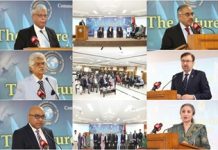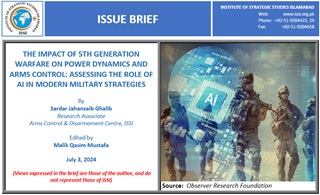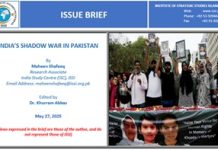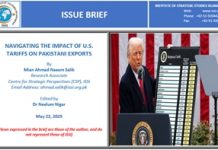Rapid technological developments have created more complex and multi-dimensional power dynamics in the 5th generation warfare. Various states are involved in an intensified competition for strategic dominance, as they want to expand their range of capabilities encompassing both conventional and non-conventional means. Strategic dominance has become more and more competitive as states deploy an increased number of capabilities to compete with one another, due to which the competition between major powers has also been escalated. In addition to traditional military warfare, the arms race now includes emerging technologies as well as in 5th generation warfare.[1] The ongoing development of AI militarization will present multiple challenges that extend beyond security concerns, as countries worldwide seek to develop Autonomous Weapons Systems (AWS). The strategic environment and the nature of warfare have undergone a significant transformation in recent years because of the increased advancement of AI.[2] It has shown how major powers are competing in the offensive realist paradigm in order to develop themselves with AI capabilities and how other states are compelled to further improve their security. A new division has emerged between states that are developed in AI capabilities and those that are not, and this will create an uncertainty in geopolitics thus contributing towards intensified arms race.[3]
Home ISSI Publications Articles Issue Briefs Issue Brief on “The Impact of 5th Generation Warfare on Power Dynamics...















